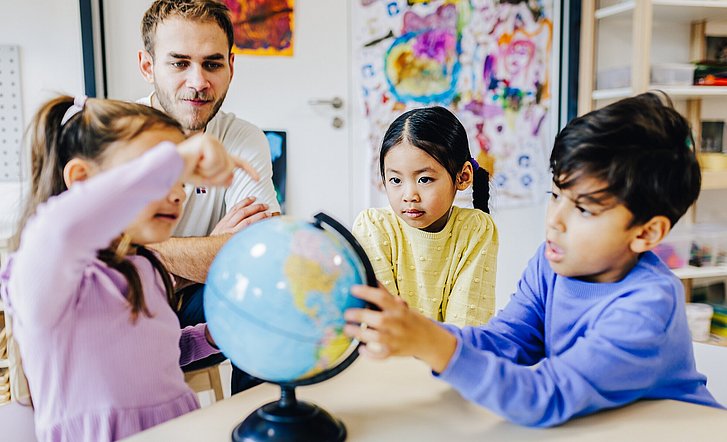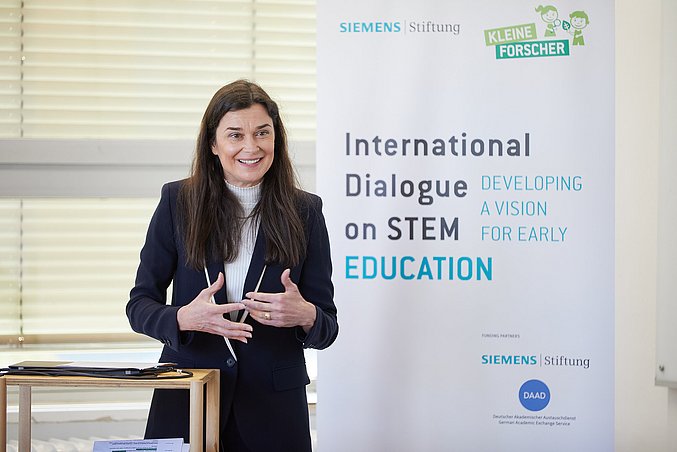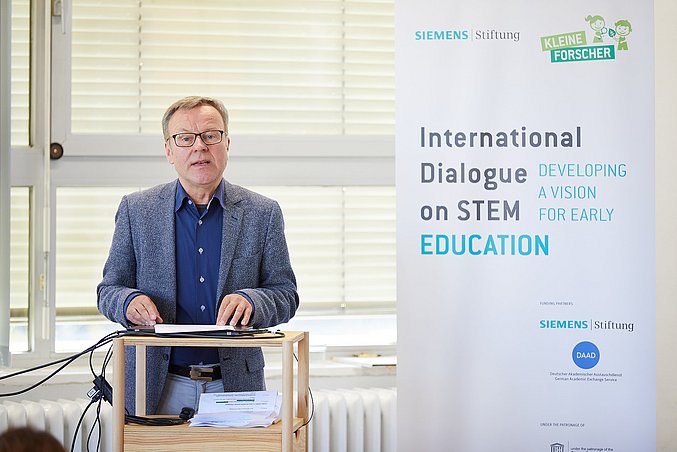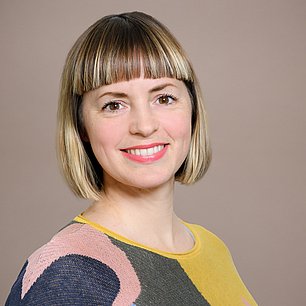In the paper the peers draw on scientific findings combined with their own experiences of impactful collaborations. The paper presents five types of networks (Resilience Networks, Scale Networks, Action Networks, Movement Networks, and Learning Networks) and identifies key factors that determine the success of a collaborative network. These include a good strategy and stewardship of the network, sufficient resources and funding, high motivation and commitment of network members, the application of effective practices of monitoring, evaluation, accountability, and learning (MEAL), as well as the network’s ability to adapt to the context and complexity they are faced with.

© Stiftung Kinder forschen / Christoph Wehrer / Children worldwide need access to quality early STEM Education. Networks among actors and initiatives enhance the development and professionalisation in this field.
New Publication: IDoS Learning Paper on Impact Networks
The six member organisations of the International Dialogue on STEM Education (IDoS peers) release a learning paper: "How can networks help encourage the development and professionalisation of innovative early STEM Education in a changing world?", that highlights the impact of networks among diverse actors and initiatives engaged in early STEM Education. In a world marred by crises and growing complexities, the paper recommends network-building and collaboration to ensure children receive quality STEM Education.
Berlin/International: The world is becoming more complex. In the face of the climate crisis, the Covid-19 pandemic, social inequality, and the changes brought by digitalisation, children today need to acquire skills and competencies to cope with future challenges. Thus, extensive advocacy for quality early education in science, technology, engineering/ computer science, and mathematics (STEM) is needed, as it promotes critical thinking and problem-solving skills in children and benefits community members and societies around the globe. In their learning paper, the six IDoS peers Stiftung Kinder forschen, Siemens Stiftung, Smithsonian Science Education Center, LUMA Centre Finland, Fondation La main à la pâte, and the Office for Climate Education (OCE) demonstrate how impact networks (formed to address complex social or environmental issues) can enhance innovative early STEM Education. As experts in this field, the peers aim to support field-developing institutions to increase the impact of their work for a better and easily accessible education worldwide.
Paper lists criteria for successful networking in STEM Education

© René Arnold / Stiftung Kinder forschen / Nina Smidt, Siemens Stiftung
Dr Nina Smidt, Managing Director and Spokesperson of the Board at Siemens Stiftung, says: "We can address the global challenges only by connecting people, communities, and societies. The learning paper bears testimony to this as the peers learn and exchange as sparring partners and, in the process realise United Nations’ Sustainable Development Goal: ‘Revitalising the global partnership for sustainable development’."
Michael Fritz, Executive Manager of Stiftung Kinder forschen, adds: "Our network partners in Germany enable us to scale up our continuing professional development programme for teachers and educators all over the country, thus ensuring that as many children as possible get a quality STEM Education. Similarly, other IDoS organisations cooperate with networks in their respective countries and even across borders. This paper demonstrates how a strategic interplay of actors from education, politics, business, science, and society gives the field of early STEM Education the attention and support it deserves."

© René Arnold / Stiftung Kinder forschen / Michael Fritz, Stiftung Kinder forschen
Combined expertise to drive change
IDoS defines itself as a learning network, formed to exchange and combine knowledge and best practices from organisations around the world to deal with the growing intricacy of STEM Education. Not only do STEM disciplines become more intertwined as sustainable development goals evolve, but the environments in which they are being taught is changing as well, as they come to include digital tools like Open Educational Resources (OER), blended- or hybrid learning, and online learning. Organisations that specialise in teachers’ training and in the provision of pedagogical resources need to be able to adapt to these new environments. IDoS peers pave the way for networks to become “education ecosystems”: supporting and implementing national education policies, increasing the capacity of teachers and educators, and improving access to STEM Education worldwide. IDoS peers share a common vision of educational innovation, whereby STEM Education concepts are developed, professionalised, and effectively implemented in networks of different countries in a way that is tailored to local needs on the ground.
Their learning paper is the second publication by members of IDoS. The first publication in 2019 argued for an integrated approach to STEM Education for Sustainable Development. In 2023, the peer dialogue will focus on the topic of "Early STEM Education in the digital age".
About the "International Dialogue on STEM Education" (IDoS)
The International Dialogue on STEM Education (IDoS) is a joint initiative of Stiftung Kinder forschen (Little Scientists Foundation) and Siemens Stiftung that promotes high-quality early STEM Education for Sustainable Development.
The IDoS member organisations ("IDoS peers") share the conviction that global developments and the demands for a quality education arising thereof can best be tackled by working together internationally. They are seeking a systematic and regular exchange, combining the global knowledge on STEM Education and its local practice, from which the organisations involved can benefit in a sustainable way. By engaging with leading institutions across the globe, the parties can enhance the efficiency and effectiveness of their work, implementing it in a context-specific, knowledge-based, and practice-oriented manner.
IDoS operates under the auspices of the German Commission for UNESCO and the OECD; it receives financial support from Siemens Stiftung and the DAAD (from funding provided by the German Federal Foreign Office).
